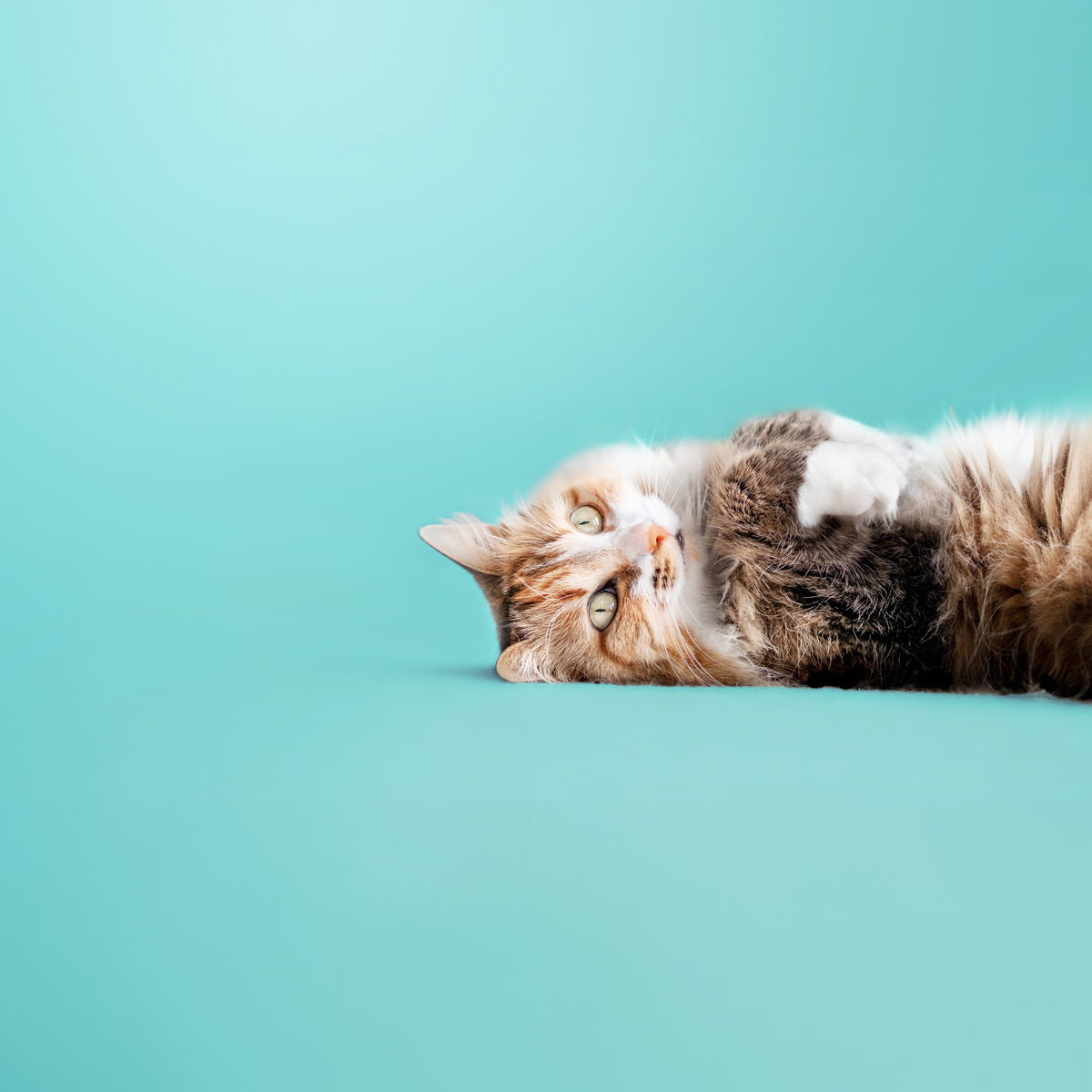Turns Out It’s Healthy For Your Cat to Sleep In Your Bed With You (Dogs, Not So Much)
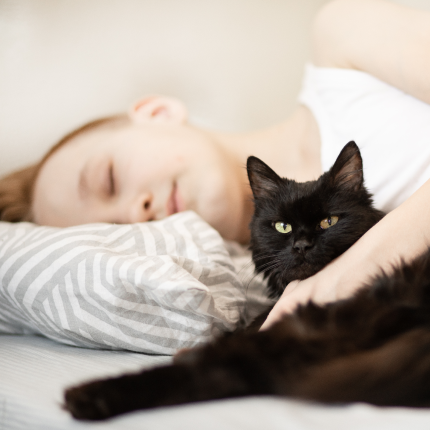
For many pet owners, the joy of snuggling up with their furry companions in bed is unmatched. Whether your pet sleeps curled beside you or shares the room, their presence often brings comfort. However, recent research suggests that cats might offer better sleep quality than dogs when it comes to co-sleeping.
Dr. Brian N. Chin and co-authors Tvisha Singh and Aisha S. Carothers from Trinity College conducted a comprehensive study surveying 1,591 individuals aged 18 to 91. The focus was on understanding how co-sleeping with pets impacts sleep quality, stress levels, and the relationship between humans and their animal companions. Of these participants, 758 reported co-sleeping with their pets in bed or the same room. The study compared co-sleepers responses with those who did not sleep with pets to analyze the differential impact on sleep.
Research Findings
Dr. Chin’s study revealed intriguing differences between those who co-slept with cats versus dogs. Individuals who reported co-sleeping with dogs tended to experience poorer sleep quality, lower sleep efficiency, and increased insomnia severity compared to non-co-sleepers and those who co-slept with cats. On the other hand, cat co-sleepers reported no significant difference in sleep quality or insomnia severity compared to non-co-sleepers. They even reported better sleep efficiency than both dog co-sleepers and non-co-sleepers alike.
Factors Influencing Sleep Quality
Dr. Chin hypothesized several factors that could explain the disparity in sleep quality between cat and dog co-sleepers. Dogs, especially larger breeds, are more likely to cause night disruptions due to movement, noise, and body heat. Their tendency to move around and occupy the bed can disturb sleep. In contrast, cats are known for their quiet and graceful movements, causing minimal disruption to their human companions’ sleep.
Moreover, the study highlighted that the number of pets a co-sleeper had correlated with increased insomnia severity. This suggests that while pet ownership can bring comfort and companionship, it may also introduce challenges related to sleep hygiene, especially when multiple pets are involved.
Perceptions vs. Reality
Interestingly, despite the study’s empirical findings, most co-sleepers expressed positive beliefs about the impact of sharing a bed with their pets. Around 60% of co-sleepers believed that sleeping with their pets positively or very positively impacted their sleep quality. Similarly, an overwhelming 83% believed that co-sleeping positively or very positively impacted their overall health and well-being. These perceptions indicate a strong emotional bond between pet owners and their animals, often influencing their perceptions of sleep quality and general wellness.
Considerations for Pet Parents
While the study provides valuable insights into the effects of co-sleeping with pets, it also underscores the importance of considering individual circumstances and preferences. Maintaining a good night’s sleep is crucial for overall well-being, and disruptions caused by pets can lead to frustration and diminished quality of life over time.
For pet owners, the decision to co-sleep with their furry companions should involve thoughtful consideration of factors such as pet behavior, sleep habits, and personal sleep preferences. While cats may generally pose fewer disruptions during sleep compared to dogs, individual differences in pet behavior and temperament can significantly influence the sleep experience. Providing pets with designated sleeping areas, such as pet beds or comfortable spots in the same room, can help mitigate disturbances while maintaining the bond between pet and owner.
Ultimately, the decision to co-sleep with pets remains a personal one, balancing the benefits of companionship and emotional support with the need for restful sleep. By understanding the potential impacts of co-sleeping and implementing strategies to promote better sleep hygiene, pet owners can cultivate a harmonious living environment that supports both human and animal well-being.
While co-sleeping with cats may offer benefits in terms of sleep quality compared to co-sleeping with dogs, each pet owner should evaluate their unique circumstances and preferences to determine the best sleep arrangement for themselves and their beloved pets.

Featured Articles
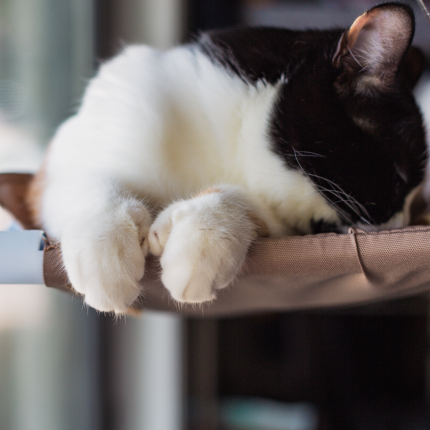
Polydactyl Cats: Just More Beans to Love
Polydactyl cats have become extremely popular in recent times. As a result, more and more people are interested in learning more about this six-toed cat and want to get one of their own. If you are a cat lover intrigued by polydactyl cats, you have come to the right place….
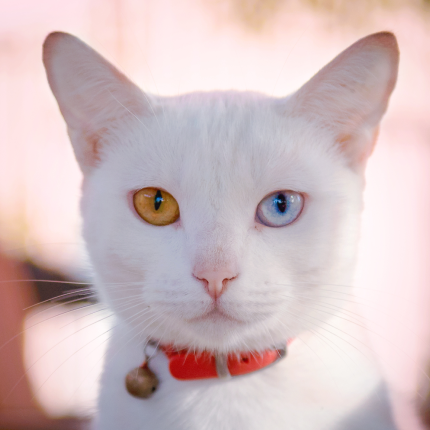
The Odd-Eyed Cat (AKA Heterochromia)
Cats are already beautiful and fascinating creatures, but people are bound to take notice when they have something as captivating as two different colored eyes. Odd-eyed cats always have one blue eye paired with either a green, yellow, or brown eye. This form of heterochromia occurs in other animals, including…
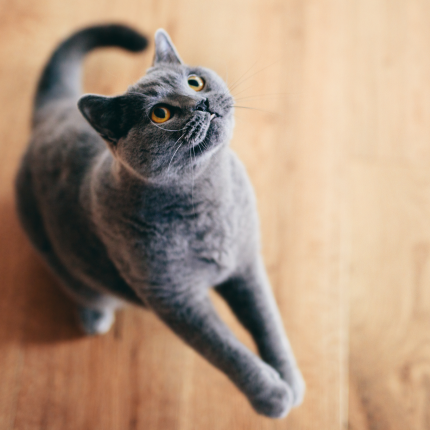
Greebles and Cats: The Origin and the Meaning
You may have seen an internet sensation concerning cats labeled “greebles.” Feel out of the loop? We’re here to help you. In 2019, Reddit user /user/literallyatree commented on a Reddit post about a cat that looks like it’s trying to slap a ghost. This user commented: “My family calls things…
